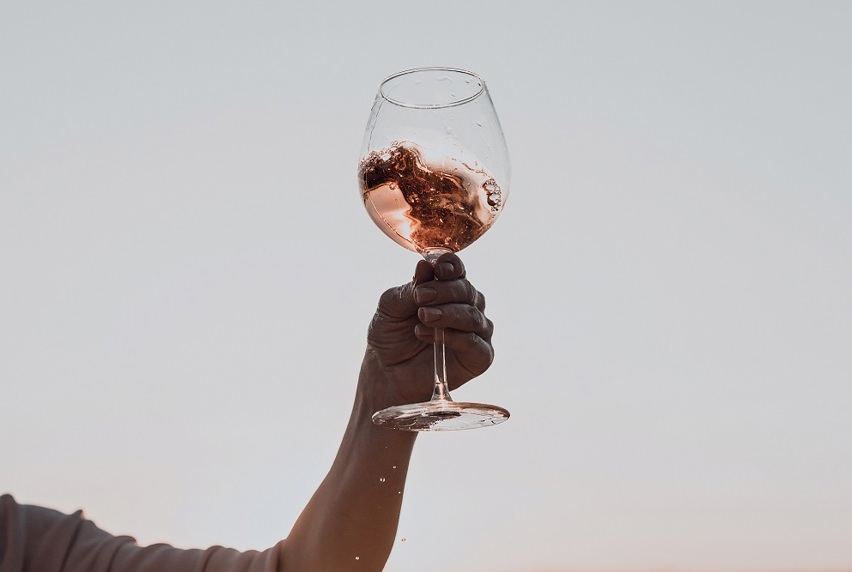How to become a winemaker

What’s better than sitting outside watching the sun set over a burgeoning vineyard as you sip on a delicate white or a gutsy red? When you have made the wine yourself – that’s better. This may sound like an impossible dream but Melbourne Polytechnic has pathways to put you in the wine picture, from short courses to a Bachelor degree.
Of course, there is more to winemaking than the finished product and the wine industry has careers in a wide range of fields, from viticulture to research, cellar door sales to vineyard manager.
From little things, big things grow
A good starting point is the six-week Introduction to Winemaking course, which gives students an overview of wine styles and the process of production, from the fruit on the vine to the bottled end product.
Along with the theory is the hands-on practical experience, which leaves students with bottles of their own vintage. It’s a good course for anyone interested in wine or those exploring a career change and thinking they might like a taster before heading into further study.
Victoria’s only winemaking degree
Melbourne Polytechnic offers Victoria’s only degree-level winemaking course, the Bachelor of Agriculture and Technology (major in Viticulture and Winemaking). And as lecturer Andrew Davey puts it; ‘This is the best way to become a winemaker.’ Graduates find employment as winemakers, viticulturalists, researchers, cellar managers, vineyard managers, wine exporters or retailers.
Over three years full-time at the Epping campus, students learn all aspects of the industry and will find a stream that interests them the most. The course is also available part-time.
Classes are delivered face to face, or online and accessible to a time that suits you, with flexibility for students who are not in Melbourne or work full time. There are also field trips to wineries and vineyards around the state.
Classroom in the vineyards
At the wine facilities on Epping campus, students use a wine chemistry lab, wine tasting lab and winery equipment and have access to the nearby Growling Frog vineyard at Yan Yean.
They complete the entire process from vine to wine – they are given a real crop of cabernet sauvignon grapes grown in the Grampians or at Yan Yean so they can make their wine in the Epping winery.
From vine to wine
‘The students do a full 100% production in that they bottle and filter it and then label it,’ Andrew says.
The students make their own small batch in a demijohn, a 20-litre container, and they also work collectively to make a tank of 700 litres of wine which they bottle and label under the school’s Australian College of Wine label.
There are currently two vintages for sale – the 2020 rose and the 2018 cabernet sauvignon, which are available to the public at the wine storeroom in Epping.
So what’s life like after completing the bachelor degree? ‘It'll just mostly be you sitting by a barrel sipping wine and looking into the distance,’ Andrew jokes. But seriously, most of the students will be looking to become winemakers. That means ‘processing wine to a commercial standard, it could be a million litres or a thousand litres. Day to day it is sensory analysis, making decisions about oak or production style.
‘There is lots of production work involved, moving wine from A to B, telling people to move wine from A to B. The majority of people won't be working physically in the cellar. There are plenty of people who do and I for one like getting my hands dirty. But if you're working for a million-litre production facility you've got people in the cellar who work on the ground and do that for you.
Choose your own career adventure
‘There’s a lot of tasting, sensory evaluation, you might end up going down a branding and marketing stream so you might be the figurehead of that label – people want to meet the winemaker.
‘On the other side you might end up being a research winemaker, or a sales rep for a biotech or equipment company, you might end up doing a whole bunch of different things.
‘You might end up being a viticulturalist, which is on the growing side of things. Viticulturalists make decisions on risk management, plant pathology and vine establishment. ‘It depends fundamentally your personality type and what you want to get involved in and people choose those streams.’
High-demand for hard working graduates
Sylvana Iacuone, head of program, Bachelor of Agriculture and Technology, says Melbourne Polytechnic winemaking students are snapped up for jobs before they even finish their studies.
‘Lots of wineries and vineyards and businesses within the industry contact us directly and ask us to advertise positions to our students,’ she says. ‘Graduates are highly sought after, they often secure work in the industry before they have even completed the course.
‘The industry values our students, they know they are keen, they know that they’ve already learned some skills in their first semester of study. Our course is very much about teaching them industry valuable and practical skills.’